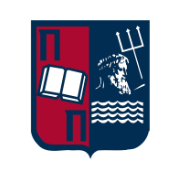Web Programming |
|
|---|---|
| Professors | Vassiliki Koufi |
| Course category | CSM/IS |
| Course ID | DS-535 |
| Credits | 5 |
| Lecture hours | 3 hours |
| Lab hours | 2 hours |
| Digital resources | View on Aristarchus (Open e-Class) |
Learning Outcomes
Web applications are the basis of service provisioning in future internet environments. The course includes both theoretical lectures and laboratory exercises. With the completion of the course, the student will be in position to:
- Understand and become familiar with the key concepts and principles of web and mobile programming, the methodologies and techniques for the development and management of future web applications.
- Know the main design and implementation principles of for the realization of web and mobile information systems.
- Be able to implement code artefacts that enable the development of web and mobile information systems by exploiting the programming techniques and methods analysed during laboratory exercises.
Course Contents
- Introduction.
- Basic concepts
- Functionalities
- Used protocols
- Development of web services and applications.
- Architectures: Client-server and peer-to-peer models, Service Oriented Architectures
- Java Application Programming Interfaces, Sockets
- Design and development of interfaces.
- Asynchronous JavaScript and XML (Ajax)
- Relevant frameworks (jQuery, Bootstrap)
- Multimedia web applications.
- Categories of multimedia services
- Stored audio and video streaming applications
- Real-time interactive web applications
- Quality of service management
- Portable information systems.
- Android Stack
- Architectural design of portable information systems
- Implementation of mobile information systems
- Data analytics and artificial intelligence
- Collection and storage of data through information systems (SQL, NoSQL, Object stores)
- Techniques and frameworks for data analytics (Apache SPARK, Tensorflow, Keras)
- Data management and analytics lifecycle
Moreover, the EVDOXOS system will be utilized to provide additional useful information to the students as well as exercises that respond to the corresponding thematic topics / sessions covered by the course.
Recommended Readings
- D. Gavalas, V. Kasapakis, T. Chatzidimitris, “Mobile Technologies”
- C. Douligeris, R. Mavropodi, E. Kopanaki, A. Karalis, “Technologies and Programming in the Web”

